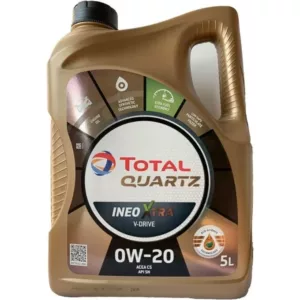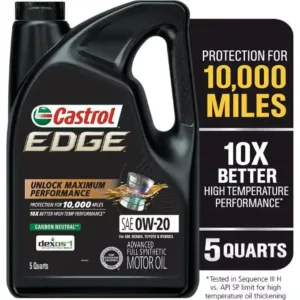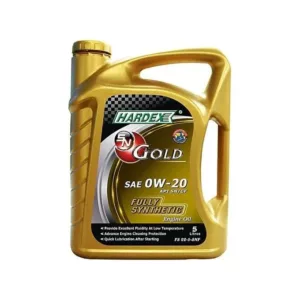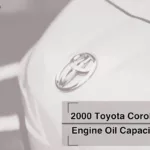When it comes to keeping your 2023 Toyota Corolla in Nigeria running smoothly, choosing the right engine oil is a critical decision that can have a significant impact on your car’s performance, fuel efficiency, and overall longevity. Selecting the appropriate engine oil can ensure that your vehicle runs smoothly and efficiently, providing you with a comfortable and safe driving experience.
To choose the right engine oil for your car, there are a few factors that you should consider, such as viscosity, synthetic or conventional oil, and the manufacturer’s recommendations. By taking the time to select the right oil, you can potentially save money on repairs and increase the lifespan of your vehicle.
Here at IchieTech, we have put together an informative article that discusses the factors to keep in mind when selecting the best engine oil for 2023 Toyota Corolla in Nigeria. Additionally, we recommend that you check out our article on the Best Generator Engine Oil in Nigeria for more helpful tips and information.
If you own a Toyota Corolla, it is important to know the right oil type to use. If your car was made in 2009 or later (2009 and above), Toyota recommends using synthetic motor oil with the plate number 0W-20. On the other hand, if your Corolla was manufactured in 2008 or earlier (2008 or below), it is best to use synthetic motor oil with the plate number 5W-30.
List of the Best Engine Oil Brands for 2023 Toyota Corolla
1. Mobil 1 Extended Performance 0W-20
 This oil is designed for extended oil change intervals of up to 20,000 miles and provides long-lasting engine protection. It flows well in cold temperatures for faster oil circulation at start-up and maintains engine cleanliness.
This oil is designed for extended oil change intervals of up to 20,000 miles and provides long-lasting engine protection. It flows well in cold temperatures for faster oil circulation at start-up and maintains engine cleanliness.
2. Total Quartz 9000 Full Synthetic Engine Oil 0W-20
 This oil offers superior engine protection and ensures optimal performance in extreme temperatures. It reduces engine deposits and enables extended oil change intervals, which can improve fuel economy and engine efficiency.
This oil offers superior engine protection and ensures optimal performance in extreme temperatures. It reduces engine deposits and enables extended oil change intervals, which can improve fuel economy and engine efficiency.
3. Castrol Edge 0W-20 Advanced Full Synthetic Motor Oil
 This oil provides maximum engine protection, reducing friction and wear. It performs well in extreme temperatures and reduces engine deposits, which can help extend engine life.
This oil provides maximum engine protection, reducing friction and wear. It performs well in extreme temperatures and reduces engine deposits, which can help extend engine life.
4. Shell Helix HX8 0W-20
 This oil offers superior engine cleanliness and wear protection, ensuring reliable performance for modern engines. It maintains consistent viscosity across a wide range of temperatures, which can reduce oil consumption and minimize emissions.
This oil offers superior engine cleanliness and wear protection, ensuring reliable performance for modern engines. It maintains consistent viscosity across a wide range of temperatures, which can reduce oil consumption and minimize emissions.
5. Hardex SAE 0W-20 SN Fully Synthetic Engine Oil
 This oil provides long-lasting protection and keeps the engine clean, reducing wear and extending engine life. It flows well in cold weather for easy start-up and allows for extended drain intervals.
This oil provides long-lasting protection and keeps the engine clean, reducing wear and extending engine life. It flows well in cold weather for easy start-up and allows for extended drain intervals.
Understanding Viscosity
Viscosity Grades Explained
Viscosity refers to the oil’s thickness and its ability to flow. When selecting engine oil, you’ll come across numbers like 5W-30 or 10W-40. What do these mean? The numbers on an oil bottle, like “5W-30,” are straightforward. The first number, before the “W” for “winter,” indicates the oil’s thickness when cold, like in chilly weather.
A lower number means the oil is less thick in cold temperatures. The number after the dash (-) represents the oil’s behaviour when hot, around 100°C. It shows how quickly the oil becomes thinner at higher temperatures.
Ideal Viscosity for Toyota Corolla in Nigerian Climate
Choosing the right viscosity for your Toyota Corolla in Nigeria depends on several factors. Recommended viscosities range from 0W-16, 0W-20, 5W-20, to 5W-30 engine oil. These viscosities are suggested to ensure easy starting and optimal engine performance in extreme weather conditions and varying temperature ranges.
It is crucial to refer to the vehicle’s manual or seek advice from a professional to determine the specific viscosity grade that suits your Toyota Corolla model and the Nigerian climate. Always follow the manufacturer’s recommendations for the best oil viscosity for the Toyota Corolla in Nigeria to ensure its optimal performance.
Recommended: Oil Change: Signs and How to Change Your Cars Oil
Synthetic vs. Conventional
Benefits of Synthetic Oil
Synthetic engine oils offer superior protection and performance. They are engineered for high-temperature stability, reduce friction, and provide excellent wear protection. While they may cost a bit more, the long-term benefits for your Toyota Corolla are worth it.
Conventional Oil – A Viable Option
If you’re on a tight budget, conventional oil is still a viable option. It provides decent protection, especially if you’re diligent with your oil change intervals. However, keep in mind that it may not perform as well in extreme conditions.
Tips for Maintaining Engine Health
Regular Oil Changes
Don’t forget to change your engine oil as per the manufacturer’s recommendations. Regular oil changes are the cornerstone of engine health.
Monitoring Oil Levels
Check your oil levels periodically to ensure your engine is well-lubricated. Maintaining the right oil level is crucial for engine longevity.
Maintenance Schedule
Stick to a regular maintenance schedule, which includes oil changes, to keep your Toyota Corolla running smoothly.
FAQ Section:
Q1. How Do I Know What Type of Oil Filter I Need?
- The manufacturer will tell you in your owner’s manual what type of oil filter you need, so all you need to do is match it up.
Q2. How Many Litres of Oil Does a 2023 Corolla Take?
- L, LE, LE ECO, S, and XLE TRIMS can take 4.5 quarts (about 4.3 Liters of oil with filter).
- XSE and XRS TRIMS can take 4.02 quarts and 4.86 quarts respectively (about 4.3 and 4.5 Liters of oil with filter).
Q3. Can I Use 5W-30 in My Toyota Corolla?
- If you own a Toyota Corolla, it is important to know the right oil type to use. If your car was made in 2009 or later, Toyota recommends using synthetic motor oil with the plate number 0W-20. On the other hand, if your Corolla was manufactured in 2008 or earlier, it is best to use synthetic motor oil with the plate number 5W-30.
Q4. What Does Sae Stand For in Oil?
- The Society of Automotive Engineers (SAE) has created a classification system that is based solely on oil viscosity. To classify oils, their viscosity is measured in cold conditions at different temperatures below zero, as well as in hot conditions at 100ºC
Q5. What Is the Difference Between XLE and XSE Corolla?
- The Toyota Corolla XLE comes equipped with the same 1.8-litre engine as the L and LE trims, which delivers 139 horsepower and 126 pound-feet of torque. With this engine, the XLE model boasts impressive fuel efficiency ratings of up to 29 mpg in the city and 37 mpg on the highway. On the other hand, the XSE and SE trims have a more powerful 2.0-litre engine, capable of producing 169 horsepower and 151 pound-feet of torque.
Conclusion
To ensure the longevity and health of your vehicle, it is important to invest in the right engine oil. There are several key factors to consider, including viscosity, synthetic vs. conventional options, and following the manufacturer’s recommendations. Choosing an engine oil with the correct viscosity level and considering your driving habits, budget, and environment are important. Consistent maintenance, including regular oil changes and following the recommended maintenance schedule, is crucial to keep your car’s engine functioning at its best.











